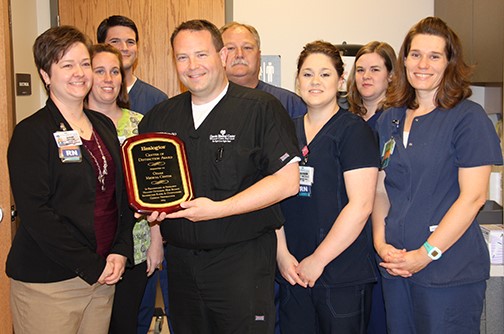The move to ICD-10 threatens to create billing chaos for physicians, which could in turn create serious financial problems for practices. One of the best ways to avoid problems is to make sure your billing staff know the many, many new codes and how they are applied differently than ICD-9 codes, so you need a specific plan for educating staff about ICD-10.
But wait before you get the staff together for a PowerPoint®. Timing will be essential to an effective education program, so you might want to put your plan in place and then wait for the right moment to pull the trigger.
Educating your staff is crucial because the current 18,004 billing codes will expand to 155,000 codes with ICD-10 on October 1, 2014. In addition, the codes will be linked to disease processes and anatomy in a way they were not previously, requiring a more in-depth understanding by the biller. There are many education options already in the marketplace, including consulting companies, CMS, the American Health Information Management Association, and the AAPC.
Group practice managers and CFOs are waking up to the need for ICD-10 education, notes Neil Stanley, regional president of corporate partnerships at Harrison College, based in Evanston, Ill., who works directly with the college’s new ICD-10 Training Curriculum. Those options can range from a 15-minute self-paced online module appropriate for a physician who has little direct involvement with charting and coding, to more intensive certification courses that may require dozens of hours of in-person instruction.
“A lot of CFOs have told me of sleepless nights because they have thousands and thousands of people who need to be educated,” Stanley says. “The question for most providers is whether to do it internally or reach out to someone who can help provide the education.”
Most physician practices are not prepared for the education required with the ICD-10 transition, Stanley says. The first step, he says, should be assessing how well your staff work with ICD-9, even though the coding sets will be completely different. If staff are not working well with ICD-9-missing potential codes, miscoding, undercoding-some of those bad practices can be transferred into ICD-10, he says. Addressing those bad habits should be done immediately to improve your last months of ICD-9 coding and to have your staff in the best position for the transition, says Stanley.
Online training can be a good option because staff can complete it at their own pace and when they have time in the office, rather than having to set aside work time for training, says Michele Hibbert-Iacobacci, vice president of information management and support at Mitchell International, a consulting and software service provider in San Diego. Specialty practices should target training to the ICD-10 code sets they use most rather than trying to ensure staff know the entire code set, she says.
“If you’re in an obstetrics office, you’re probably not that interested in coronary artery bypass graft surgery, and that’s okay,” she says. “It is a mistake to go into this thinking that just because ICD-10 comes with thousands of new codes for everything imaginable, that your staff has to learn all those or you’re not ready for the transition. You should be aiming for parity, for the ability to accurately code the same treatment that your practice has already provided.”
Coding for the same treatment will still mean coding in a more detailed way with new codes, but learning that is a much easier task than learning all of ICD-10. That is an important point to make when preparing staff for ICD-10 education, Hibbert-Iacobacci says. They may have heard about the huge number of codes in ICD-10 and feel intimidated by the challenge of learning them all, she says.
“The good news is they don’t have to learn the entire ICD-10 code set, and that should be reassuring,” she says. “Nobody can learn all of the new codes. You learn the codes that matter most to your practice, and you learn the new methodology in which codes are applied.”
Even though ICD-10 training will be crucial for physician practices before the October deadline, Hibbert-Iacobacci cautions against seeking that education too early. Timing the ICD-10 training will be critical to success, she says.
“One of worst mistakes you could make would be to get the training too early in the year,” she says. “You really should wait until about three months before the transition, so July, August, and September are the great months to get trained in ICD-10. If you are trained now and then you still have to use ICD-9 in the interim, you’re going to forget it by October.”




